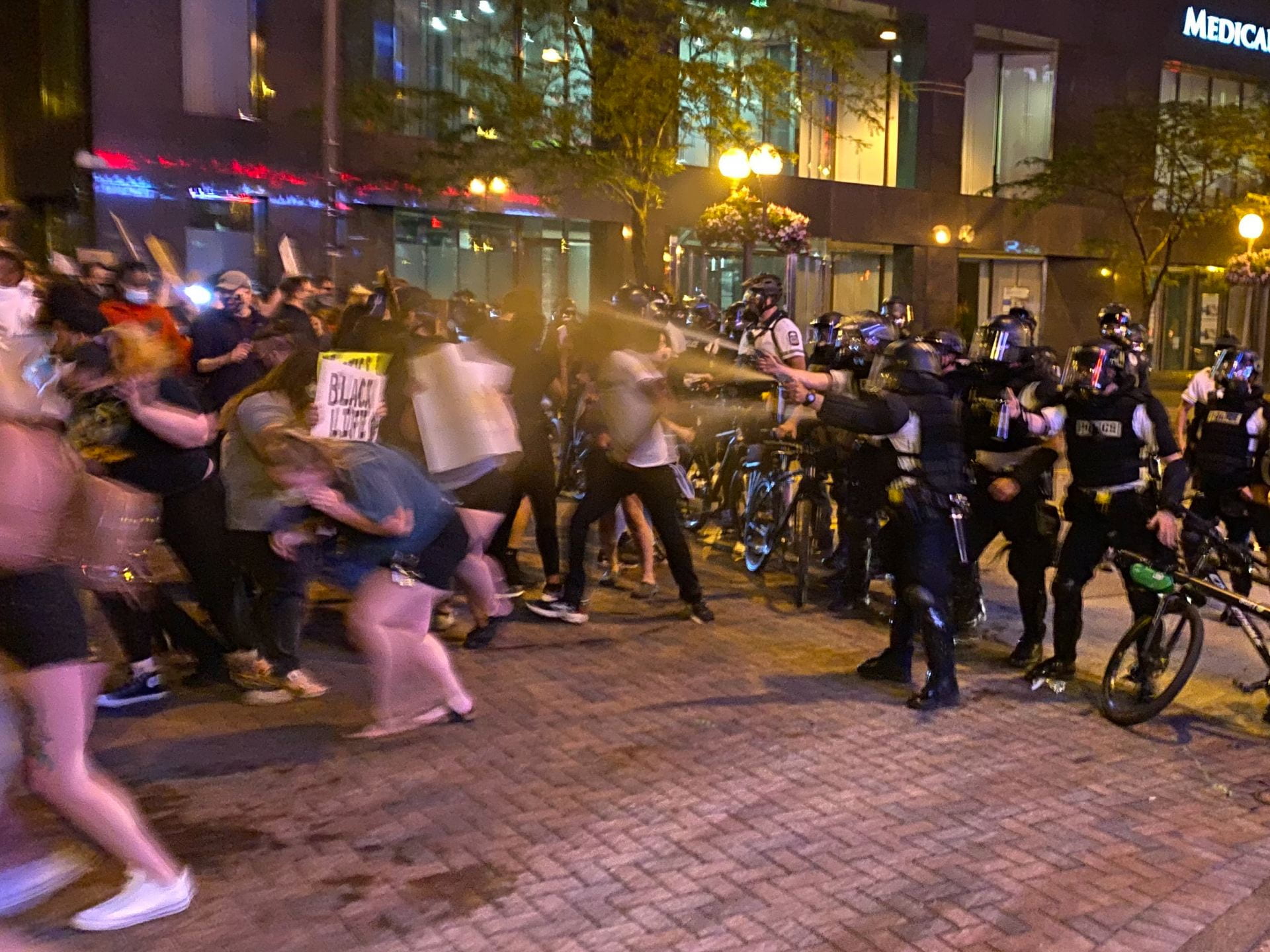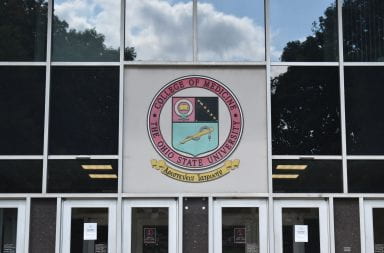
Columbus Police pepper-sprayed protesters May 28, 2020 after a Lime scooter was thrown at police. Credit: Max Garrison | Asst. Campus Editor
A Columbus federal judge granted a motion Friday to temporarily bar police from using tear gas, pepper spray, wooden bullets and other forms of non-lethal force on nonviolent protesters.
The ruling, made by Chief U.S. District Judge Algenon L. Marbley, ordered a preliminary injunction that would restrain Columbus Police from using non-lethal force and “inflicting pain” to punish or deter nonviolent protesters. The ruling classifies nonviolent protesters as “individuals who are chanting, verbally confronting police, sitting, holding their hands up when approaching police, occupying streets or sidewalks, and/or passively resisting police orders.”
The ruling also requires Columbus Police to make sure their body cameras are working and used in every interaction with nonviolent protesters and to prominently display their badge numbers or other forms of identification in every interaction — even when wearing riot gear.
The ruling comes after 26 individuals sued the city of Columbus and multiple police officers, including former Police Chief Thomas Quinlan, in the U.S. District Court in Columbus for the city’s response to the Black Lives Matter protests that broke out following the murder of George Floyd in Minneapolis police custody May 2020.
“Last summer, the city was faced with extraordinary circumstances not seen in more than two decades. Today’s ruling tells us we fell short in our response,” Mayor Andrew Ginther said in a statement.
Columbus saw more than a week of consecutive protests that often resulted in police using non-lethal force against crowds — including the June 1, 2020 pepper-spraying of Lantern journalists.
The ruling also requires Columbus Police to “recognize that individuals legitimately displaying “press,” “media,” “reporter,” “paramedic,” “medic,” “legal observer,” or other “similar words and/or symbols” are allowed to be at protests in positions where they can record and document the events or provide medical aid if needed.
“All individuals, regardless of their occupation or nonviolent activity, are permitted to record at protests or whenever any police officer interacts with the public,” the ruling reads.
The federal judge granted the plaintiffs’ motion for preliminary injunction because it was determined they have a standing to sue, have demonstrated a likelihood of success on their Fourth and First Amendment claims and sustained irreparable injury because of protests. He also said public interest weighs in favor of the plaintiffs because it seeks to prevent the violation of constitutional rights.
The ruling follows Monday’s release of an Ohio State University John Glenn College of Public Affairs action review conducted by Trevor Brown, dean of the John Glenn College of Public Affairs, which found that the city of Columbus was unprepared for summer 2020 protests and there was inconsistent communication within the Columbus Police.
Update: This story has been updated at 3:30 p.m. to include a statement from Mayor Andrew Ginther.


